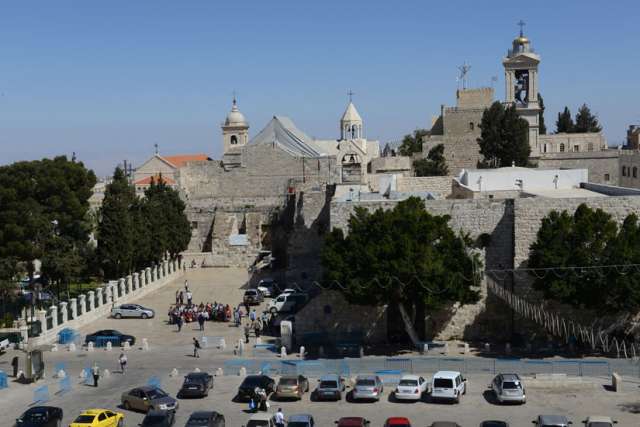Many long centuries of destruction, exile, return, conquest and oppression passed. The hopes of the nation were kept alive by God’s promise to David that there would always be one of his descendants on the throne of Israel.
At first, this “messiah” was quite ordinary, for the word merely meant one who was anointed. Even Cyrus the king of Persia had been called God’s “messiah” in the Book of Isaiah. But as centuries passed, the messianic figure morphed into a transcendent figure that would have extraordinary powers. The future messiah was envisioned as one who would make the world right — kick out the oppressors, punish the wicked and establish justice in the land. The Davidic Messiah was a symbol of God’s faithful love and fidelity to the covenant with Israel and the embodiment of hope.
As a descendant of David, it seemed obvious that Jesus would be born in Bethlehem. In the New Testament, Luke went to great pains to place Mary and Joseph in Bethlehem when Jesus was born, and the Roman census suited this purpose quite well. In Matthew’s Gospel, Herod’s courtiers consulted this prophecy in order to determine where the king whom the magi had come to visit was born. Humans live by symbols of hope and promise, and Bethlehem was just that and more — for it also symbolized a land of justice and peace.
Today the actual city of David suffers under unjust economic and political strictures, and the followers of Jesus depart continually for more congenial lands. In these very troubled and dark times, it is very important to keep Bethlehem in our minds and hearts, especially when fear, bigotry and hatred appear to be having their day.
We should never allow hope to die or faith in God’s promises to slacken. God does wondrous things for humanity through the least and the weakest — a continual divine pattern. That is the way that God works.
Continuing a long, rich, Old Testament tradition, Jesus placed sacrifice of self above the usual forms of sacrifice. The prophets had insisted that God did not require these sacrifices. God was interested only in two things: humble, contrite hearts and justice towards others, especially the poor, weak and vulnerable. This represented the highest form of worship possible. It is a principle that has not always been remembered or observed as it should, as many still pursue ways to evade the uncompromising demands of discipleship and justice.
Why did Elizabeth bless Mary? Very simply, Mary was the embodiment of the Bethlehem prophecy. She kept hope alive, never ceasing to believe that God would fulfill the promises of long ago.
Some traditions believe that the entire world in any given age is held together by the holiness and closeness to God of just a handful of people. An intriguing idea — and if it is true, Mary would certainly be at the top of the list. She refused to give in to the fear, cynicism, self-interest, injustice and violence of her time. More importantly, she never ceased trusting God’s gracious will and fidelity to the covenant. But Mary was not alone — Elizabeth was also part of this “divine conspiracy.” Both Mary and Elizabeth worked in concert, along with many others.
Jesus and John the Baptist recognized one another, even while in the womb. God’s action in the world is always mediated through a holy web of human hearts and minds that are prepared to do God’s will without counting the cost. In the present time, much will depend on such people. They strive to put fear, negativity and self-interest aside. They ask only what God wants and how they may serve the common good for the greatest number. We can pray that God finds in us these qualities, and we can also pray that our trust in God’s promises to humanity may never be diminished.


